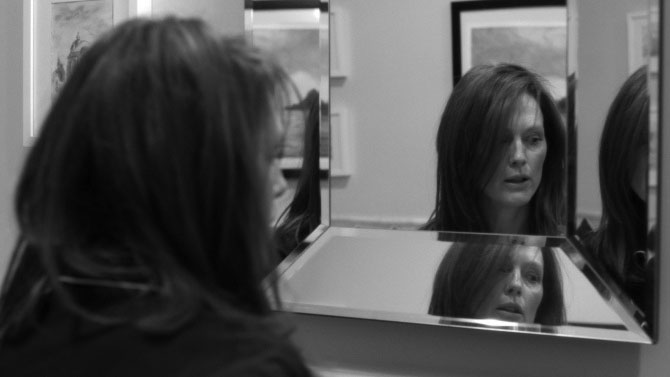At its most basic level, Still Alice is a film about a woman with a disease. Look deeper and you’ll find a story about a woman not only fighting against a disease, but fighting to find who she really is. Deeper still, and it’s a story about love reframing itself against opposition beyond human forces. All these descriptions, however meaningful and correct, still fail to capture the true essence of Still Alice. This is not a film that resonates because of its plot or because of its take on a genre; this is a film that matters precisely because of what it is not—it is unidentifiable, uncategorical. This is not a comedy—any humour found could be derived only through off-color phrases. Nor is it a romance; any relationships known at the beginning of the movie completely fall apart, left frayed and unclear at the end. But it would be trite and untrue to call it a drama, to muddy the script and poignancy of the directing with evocations of lost lovers who rekindle in the final sunset.
Still Alice is the ultimate representation of what the art of filmmaking is meant to do—it suspends you in a scenario so far beyond yourself but so painfully real in its emotion and imagery that you cannot help but feel connected to the characters on a level deeper than cinema seemingly allows. Dr. Alice Howland, expertly played by Julianne Moore, is diagnosed with an extremely rare form of early-onset Alzheimer’s disease. For a brief 101 minutes, we watch as the vibrant Columbia University professor is overtaken by her disease and we find ourselves grieving along with a family that is not ours for the life of a woman we can never know.
Unsurprisingly, Moore remains central to every scene, with the supporting characters doing just that—supporting Moore’s superb acting and adding little intrigue of their own. Alec Baldwin is lackluster as the ‘grieving husband,’ acting more as a point of irritation for the audience in his constant denial and static reception to his wife’s illness. Kristen Stewart manages to shine as Alice’s rebellious daughter, who serves as the only one of Howland’s children worth acknowledging throughout the entirety of the film. The great irony of Stewart is her ability to evoke such strong emotion without displaying any herself, creating scenes that would leave even the hardest heart on the verge of tears while Stewart as an individual entity does little beyond following the director’s instructions.
The only failure of Still Alice is how it wastes opportunities to show character development, particularly in the eldest daughter, portrayed by Kate Bosworth. Based on the dialogue, Bosworth’s character should have been far more impacted by the discovery of her mother’s disease, yet she remained little more than a plot accessory and a minor foil to Stewart. Yet, even with this glaring flaw, Still Alice soars in its ability to hone in on one aspect—Alice’s disease—without becoming boring or repetitive. Watching Alice become consumed by her losses is heart-wrenching—the film is stark in its portrayal of Alzheimer’s progression and unrelenting in its examination of the toll this disease can have on caretakers and loved ones. The film does possess moments of beauty, but ultimately not enough to provide the movie with even the idea of hope, dedicating itself instead to the dark realism that accompanies the disease.
Sad from beginning to end and fully lacking in climax or development beyond that of the disease, Still Alice is a film so raw in its execution that to watch it is to become part of it. Co-directors Richard Glatzer and Wash Westmoreland excel in creating universal nuances from minimalist moments. If you are looking to be truly engulfed by a character and an experience in its purest form, look no further than the unidealized tragedy of Still Alice.
Still Alice will be shown at various times every day at Cinema du Parc (3575 Parc). Tickets are $10 for people 13-25.








